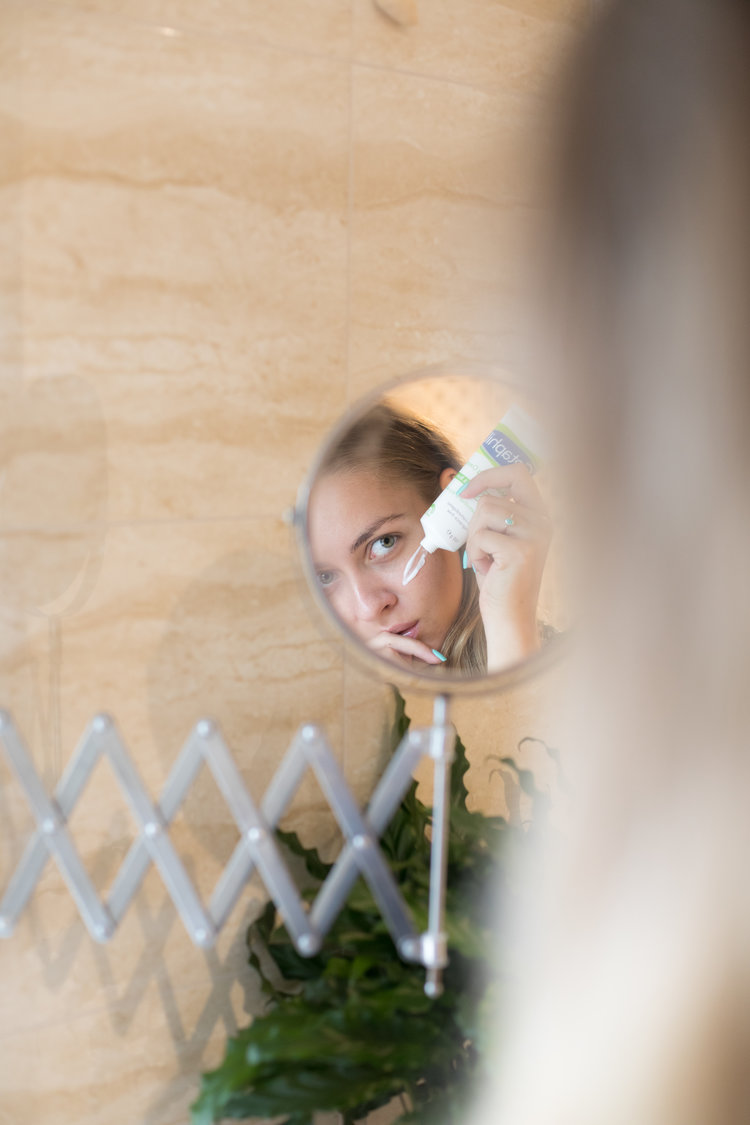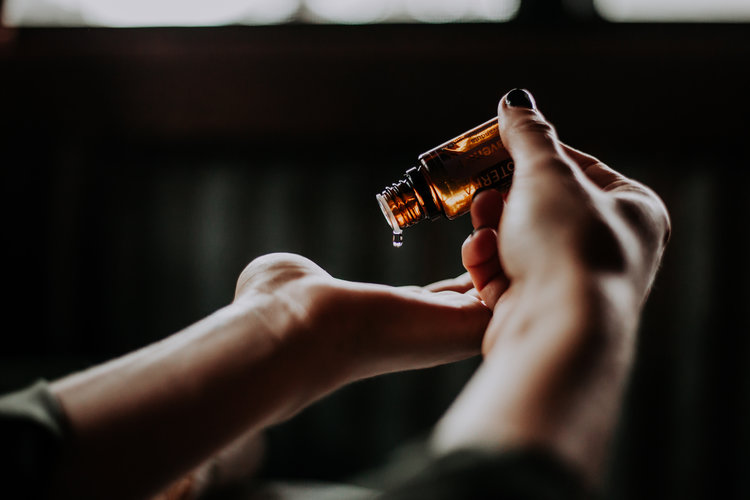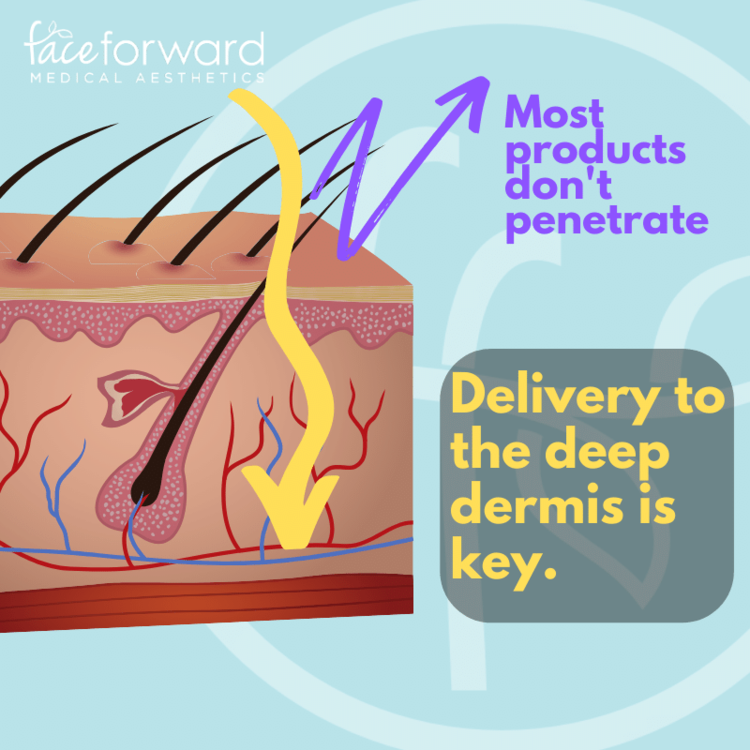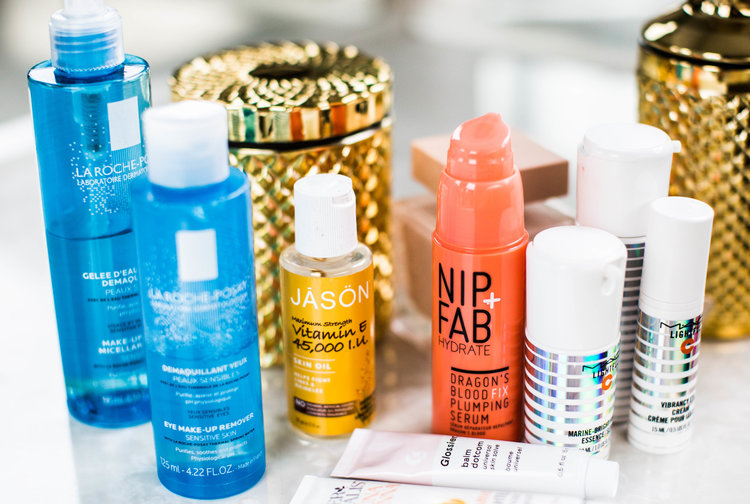
Just walk into my bathroom and open the cabinet and you’ll see my extensive (and somewhat pricey) personal skin care arsenal. Apparently I’m not alone.
Consumers spend just over 1 billion dollars on personal care, beauty, & anti-aging treatments per year.

Globally, the wellness economy (which includes activities, choices, and lifestyles leading to holistic health) is a 4.2 trillion dollar phenomenon. That’s a staggering 5% of the entire economy!
Listen, maybe I’m preaching to the choir. We’re all after the same things: we want an easy fix, we want cheap and effective, we want low risk, and high reward. Then… reality check. It’s not that simple.
When I was looking for my own regimen, and when I talk to my clients about these issues, many questions come up:
- How can you sort out what the difference is between real results, and powerful ad campaigns?
- Are you seduced by sleek packaging or results focused?
- Could the best anti aging cream, or the best eye cream, or the best face moisturizer for that matter, be from a company you’ve never heard of?
- Do you need to get a medical grade regimen, or can you just pop into Sephora?
The bottom line, if you read no further:
THE BEST PRODUCTS HAVE THE BEST INGREDIENTS, IN THE PUREST FORM, AT THE APPROPRIATE STRENGTH, AND IN CORRECT COMBINATIONS, BACKED BY RESEARCH STUDIES.
For more details, here are the differences between medical grade or pharmaceutical grade skin care products, and over the counter cosmetic products. What separates medical grade skin care products?
Here are 7 things that make medical grade skin care products unique:

1. Better quality ingredients.
Medical grade, or pharmaceutical grade products are required to contain ingredients that are 99% pure. Products that are purchased at department stores, drug stores, or on Amazon are not held to the same standards. They may contain fillers.
2. More of each ingredient.
We’ve all heard of the important active ingredients recommended for healthier skin: retinoids, vitamin C, antioxidants, and the list goes on and on). Medical grade skin care products have higher concentrations of active ingredients.
If there is an active ingredient in an over the counter cosmetic product, there just may not be enough of it to have an effect, or it may take much longer to get an effect.
Example: Hydroquinone
Hydroquinone is the active ingredient in skin care products that are trying to lighten hyperpigmentation. It is also referred to as a “depigmenting” agent. Hydroquinone is used in medical grade skin care in concentrations up to 5%.
But over the counter concentrations are capped at 2%, since a 1982 the FDA limit was put in place.
So, to be compliant, Rodan + Fields lightening agent contains 2% hydroquinone. Some patients will achieve great lightening at this low dose, but others may not see any effect unless the active ingredient is at higher concentrations simply prohibited in over the counter products. ZO Skin Health, in contrast, has the active ingredient at 4% concentration.
Example: Retinoids
Retinoids are vitamin A derivatives that have many skin benefits: stimulation of collagen production, repair of photoaging, alleviating acne, unclogging pores. Let’s take a well known over the counter option from Neocutis, their Nouvelle plus retinol cream (which you can buy on Amazon). This has 0.6% retinol.
ZO Skin Health’s retinol cream, in contrast, has a similar moderate strength version at 0.5% retinol, but also a 1% formulation. Similarly, other medical grade products such as Skinceuticals has a high concentration retinol 1% option.
3. High research standards, purity and safety regulated by the FDA.
Medical grade skin care products must have clinical research studies to back up any claims about their benefits. On the other hand, over the counter skin care products do not need to have clinical studies or research behind their claims.
Medical grade skin care products have FDA oversight. And by the way, the FDA only considers two types of categories - cosmetic, and pharmacuetical grade (contrary to popular belief there is no such thing as a cosmeceutical, under FDA law).
4. Delivery to deep skin layers.
It’s all about layers! If you’ve purchased something from a non medical professional, in any store, or online, understand these agents only work on the outermost skin layer called the epidermis. They sit on the surface and barely penetrate into deeper layers.
Pharmaceutical or medical grade skin care products are formulated to be delivered to the dermis. This is where the collagen scaffold, and collagen producing cells live. To make any real changes to the skin, the deep dermis has to be impacted.

5. Medical grade can only be prescribed by a medical professional.
One of the biggest benefits of using medical grade skin care products is that in order to access them, you’ll receive recommendations from a medical professional! When I researched the lines to offer in my medical spa, once a line is chosen there is an extensive period of training so that I can cut out the guesswork for you. I’m more likely to arrive at the best regimen for you, saving you money in the long run, and taking the stress out of continued trial and error.
6. Medical grade: not necessarily more expensive.
Most medical grade skin care lines are from companies you’ve never heard of (ZO Skin Health, Skin Better Science, Environ), although many of my clients are “in the know” and have done their research so this statement may not be totally true! But they are not always more expensive, for three reasons:
No marketing costs built in
Generally speaking, these companies do not spend their money on advertising campaigns, instead choosing to spend that money on research, and quality product development. So medical grade products are not always more expensive than their over-the-counter (OTC) counterparts.

They work, so you're not throwing away money
You also have to consider the piles of money wasted on over the counter products that you purchase and stop using, simply because they don’t work, leaving you frustrated and disappointed. The product graveyard in your bathroom is proof!
You'll use less of it
Because the active ingredient concentrations are higher, and they penetrate into the dermis, generally you’ll need to use less product to achieve great results.
7. Formulated for all, vs directed to specific needs.
We want skin care products tailored to our specific skin type, right? If you’re not buying your products from a medical professional, you’re self-diagnosing. So in the over the counter world, products have to work broadly on all skin types.
With a medical grade regimen tailored thoughtfully to your individual skin, product combinations suitable for your specific skin type and condition can be assembled to achieve your desired results.
Conclusion
As you can see, I’m passionate about skin health. Like everything in life, there’s no one-size-fits-all skin care regimen. At the same time, you can’t get something for nothing! I want you to enjoy the best possible version of your skin that we can achieve, and reveal.
Am I suggesting that medical-grade products are always superior? Absolutely not. They may have a reputation for being harsh, perhaps because of applying the wrong product to someone’s skin type, and there are plenty of excellent over the counter choices for specific aspects of your regimen.
The best solution for an individual may be to mix and match medical-grade, department store, and drugstore products. All of our new clients receive a complimentary computerized facial skin analysis and suggestions for ongoing skin care at our med spa in Lexington, MA. This never involves hard-selling. We can’t wait to meet you!

